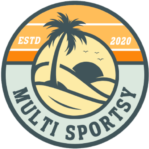In the ever-evolving landscape of digital marketing, Off-Page SEO stands out as a crucial element that can significantly impact a website’s visibility and rankings on search engine result pages. While On-Page SEO focuses on optimizing content and structure within the website, Off-Page SEO involves external factors that contribute to overall online authority and trustworthiness. In this comprehensive guide, we’ll delve into the key aspects of Off-Page SEO, exploring effective strategies and best practices to boost your website’s performance.
- Understanding Off-Page SEO:
Off-Page SEO encompasses a range of activities that take place outside your website, influencing its reputation and credibility. The primary goal is to build a strong online presence, increase visibility, and earn quality backlinks from reputable sources. Google and other search engines consider these external signals as a vote of confidence, which can positively impact your site’s rankings.
- The Power of Quality Backlinks:
One of the cornerstones of Off-Page SEO is building high-quality backlinks. These are links from other websites that point to your pages, signaling to search engines that your content is valuable and relevant. Focus on acquiring backlinks from authoritative and relevant websites within your industry, as this can significantly boost your website’s authority.
- Social Media Presence:
Social signals play a crucial role in Off-Page SEO. A strong presence on popular social media platforms not only expands your audience reach but also contributes to brand awareness and trust. Engage with your audience, share valuable content, and encourage social sharing to enhance your website’s visibility.
- Influencer Marketing:
Collaborating with influencers in your niche can be a game-changer for Off-Page SEO. When influencers endorse your content or link to your website, it can lead to increased visibility and credibility. Identify influencers with a genuine interest in your industry and build mutually beneficial relationships.
- Content Marketing and Guest Posting:
Creating high-quality, shareable content is an integral part of Off-Page SEO. Guest posting on reputable websites within your industry not only provides exposure to new audiences but also allows you to earn valuable backlinks. Craft compelling and informative content that adds value to the reader’s experience.
- Online Reviews and Reputation Management:
Positive online reviews contribute to your website’s credibility. Encourage satisfied customers to leave reviews on platforms like Google My Business or industry-specific review sites. Manage your online reputation by promptly addressing any negative feedback and showcasing your commitment to customer satisfaction.
Conclusion:
In conclusion, Off-Page SEO is a dynamic and essential component of a comprehensive digital marketing strategy. By focusing on building quality backlinks, leveraging social media, collaborating with influencers, and creating valuable content, you can enhance your website’s authority and visibility in the vast online landscape. Keep evolving your Off-Page SEO efforts to stay ahead in the competitive world of search engine rankings.










Leave a Reply